
June 2023 New England Bi-Monthly Regional Update #1
From Mick Devine, NATCA New England Regional Vice President
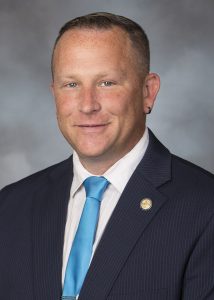
In May, over 60 members from across New England facilities, including ZBW, A90, MHT, BOS, BED, PVD, BDL, and Y90, were in attendance for this year’s Spring Fling. Also, in attendance was NATCA President Rich Santa, who gave a presentation on where NATCA is right now and where we are headed. Members were also able to ask many questions they had for Rich. Overall, the message President Santa gave was met with a great response.
Topics including staffing, pay, privatization, internal NATCA spending, the Hawaiian NEB meeting and so much more were brought up as well as NATCA’s strategies and tactics for these topics were discussed. Many of these strategies and tactics can’t be put into an email as we understand these emails are forwarded to FAA management, and they read them and often quote them.
Nationally, training continues to be a main topic of interest for both parties. This coincides with the National Training Initiative. The New England Region has historically prioritized training in our locals. So, when the NTI was implemented, it had zero positive effects on this region, in fact, it only hurt our legacy by being misapplied with weird mandates or even worse, a ceiling of training hours by not allowing training past the NTI recommendations. So New England leadership shifted the focus away from the NTI and to what the NTI was intended to imply, which is that if good training can be had, and we have trainees available, then train. Plain and simple. We shouldn’t be training on zero traffic.
While we understand the importance of the NTI in certain conditions, like those facilities that just weren’t training due to self-induced staffing constraints like counting trainees as staffing, that normally wasn’t a concern in New England. Our reps have done a very good job of keeping pressure on the ATMs on how training should be conducted. As a result, New England continues to be a national leader in training week-in and week-out. This is a result of all the controllers throughout the region who grind every single day not because we are required to, but because you care. New England members continue to look at trainees as help for the CPCs. They help upon certification in acquiring more leave opportunities, less OT, and most importantly, the ability to move out of our buildings to get to facilities that you want to be in, not the ones you were assigned.
A big shout out to our outgoing Regional Training Rep, Lisa Fulford (A90), for all her work in creating a robust team of training reps across the region and her ability to hold management accountable to do the right thing day in and day out. As she moves on to the LR team, Karen MacCrate (ZBW) is taking over after working with Lisa for years. The region is in great shape with Karen and we look forward to seeing what her leadership brings going forward.
More trainees are coming. Help is on the way with 6,900 trainees being hired in the next four years. I ask that you continue to keep your head down and train the influx of help headed our way. Obviously, the new CRWG numbers won’t have an immediate impact on our staffing, but it is the first step in a long journey of properly staffing our facilities not just in New England, but in facilities across the NAS. Thank you for all that you do every single day in making New England shine.
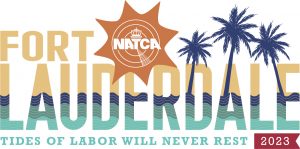
In June, NATCA will host its biannual Convention in Fort Lauderdale, FL. This is when the members of the union strip the power away from the NEB and create the direction the members want the NEB to head going forward. This is done through constitutional amendments which are voted on and argued by delegates from all of our facilities. Your Reps were briefed on all of these amendments in Pittsburgh and should be having pre-convention meetings back in their locals to go over them with you, so you can give them the feel of the membership when debating and voting come to fruition. Please ensure you read them and get involved in your local meetings to ensure your voice is heard if you aren’t able to attend. Every member should already have the convention booklet which was mailed out a month ago. If you don’t have one, let your FacRep know, or simply download it from the NATCA website.
From Scott Robillard, NATCA New England ARVP
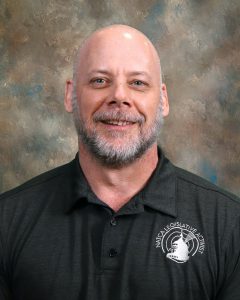
Hello NATCA New England. Last month I shared data on Credit Hours earned in New England facilities and offered to answer your questions. Thank you for the responses.
In 2021 ZBW SSS earned 678 hours and in 2022 they earned 280. Can you explain this?
Good question. In looking at the data we see A90, BOS, and PVD were also in close relationship just not near ZBW’s total (fewer staff specialists). So why are we seeing these numbers? Do you think these hours were requested by the employee as per Article 34 section 6 which reads “the employee elects to work”? Or do you think the employee felt obligated to work those hours as if they were assigned in violation of section 8?
Staff Support accomplishes work that is done during the normal work week. It is what makes these jobs so enticing. If an accident or incident occurs over a weekend, Managers and Union Representatives work those. If Staff Support work is needed or requested to build out a package for an event, that is Over Time. If a SSS has been assigned work outside of their normal work hours and there were told it would be credit, your facility leadership needs to be notified immediately.
Credit hours should be an “earn and burn” situation. It is not required nor obligatory.
How did BDL earn so much credit?
BDL Tower has an excellent, well-thought-out, and agreed-to Credit Hours policy that is contained in the Facility Watch Order. Employees can earn credit, perform meaningful work, and use the credit where it makes sense to the employee. BDL is the perfect example of what can happen. Employees typically earn on the front of night shifts and burn on the end of day shifts. All decisions are managed from the Watch Desk and the policy works for everyone.
On to Compensational Hours (Comp)….
Comp time is for hours worked above 40 in a work week. It is carried over on your LES and it does not time out or expire. If an employee separates from the Agency, it is paid out at the employee’s current overtime rate.
Comp time is not something that the controller workforce typically earns and we are paid overtime as it occurs. Comp makes sense for the Agency because IF an employee uses the comp time, it functions like annual leave (1 hour to 1 hour).
Below is the comp time earned in 2021 and 2022:

What do you think? Speak with your FacRep and send your questions to the Communications Team at [email protected].
Next month, I answer your questions and also publish the Bonus money.
OSHA
From Matt Murray, NATCA New England OSHA Rep, ZBW
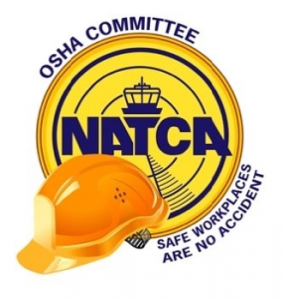
Construction Season is upon us. For many of our facilities, the month of May is the time when large-scale outdoor construction projects begin. At ZBW for example, we just kicked off an 8-week project to replace a major section of the roof.
Typically, the local OSHA rep also handles all of the pre and post-construction meetings as outlined in Article 125 of the CBA. Being involved in the pre and post-construction meetings are vitally important to the health and safety of our fellow members.
Construction projects introduce a variety of new risks and hazards to our workplace. Some may be obvious like “hard-hat areas,” where falling objects are a real potential. Others are less obvious. Take for example the mastic used to seal a new roof. At ZDC, the contractor swapped out the mastic that NATCA and the Agency had reviewed for a similar product. The only difference was a much higher “Volatile Organic Compound,” or VOC, which can cause nausea and headaches and can be very harmful to pregnant women. This case study also revealed that the air intake to the control room was not properly closed off and the high VOC fumes quickly filled the control room which led to a total evacuation of the facility.
Our job as the local OSHA rep is to review the project work plans to identify any potential hazards and ensure that all of the chemicals are reviewed, all of the safety protocols are put into place, and the local membership is kept up to date on any of the issues that may affect them. As your Regional OSHA Rep, I am here to help you review these projects and chemicals if needed.
Disaster Response Committee
From Kevin Curtiss, ZBW Area A Representative
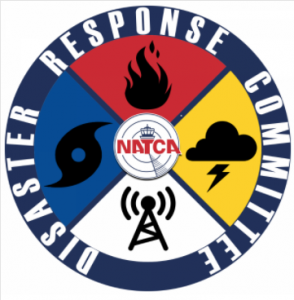
Hello NATCA New England. Our region’s Convention delegates, along with the Eastern and Central Regions’, spent two days in Pittsburgh addressing proposed amendments. Additionally, delegates were briefed on the many things that NATCA does or has available for its members.
Before The Disaster Response Committee (DRC) briefing, I, like many others, thought that NATCA had funds set aside that we just donated during times of natural disasters. I was blown away at what The DRC actually does.
For members who have a current address in myNATCA, the DRC can alert members to things like tornado warnings, hurricanes, and wildfires that are close to neighborhoods. They work with local firefighters, rescue, police, contractors, and skilled workers to help members that have been harshly impacted.
The efforts go beyond natural disasters. They can help members who have water in the basement, a tree fall on their house, or even plow a road that a facility’s workforce needs to have cleared to report for duty or leave to get home. Food, water, diapers, generators, and saws were all things that have been made available to members in need. They have helped members save thousands of dollars on home repairs covered by insurance.
What the DRC does not have is any funding from our National budget. The DRC is totally funded by donations from our members. Currently, New England is near the low-middle of the pack of regions in the amount that is donated through payroll deductions.
Our region shows how strong it is each and every summer and I’d like us to show how strong we are when it comes to taking care of each other when we are faced with disaster-related challenges.
Click here to learn more about the DRC and please consider donating funds or offering to be a volunteer in a time of need.
Announcements
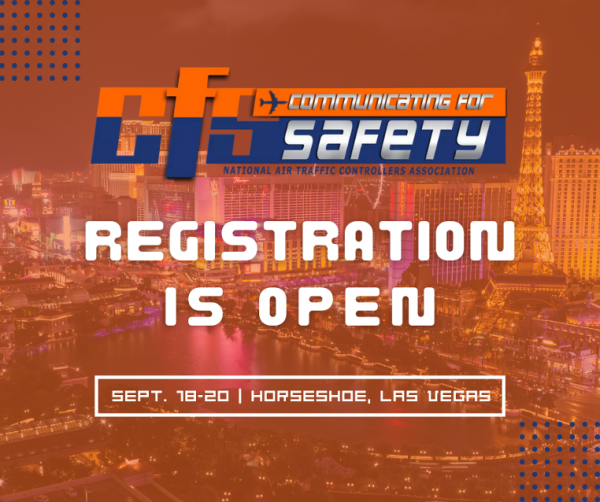
Registration for Communicating For Safety (CFS) 2023 is now open! Hosted annually by NATCA, CFS is the aviation industry’s leading conference focusing on safety, technology, and relationship building. This three-day conference is the only one to focus specifically on the air traffic needs of all members of the aviation community who are affected by the National Airspace System (NAS).
CFS will take place September 18-20 at The Horseshoe (formerly Bally’s) in Las Vegas.
Don’t wait to register! This year, if you register on or before August 18, there will be lower pricing for the conference registration and tickets for the Archie League Medal of Safety Awards banquet. Register for CFS and buy banquet tickets here.
Click here for general FAQs for CFS
Housing Policy FAQs for NATCA Members can be found here.
Have questions about registering? Email event organizers at [email protected]

